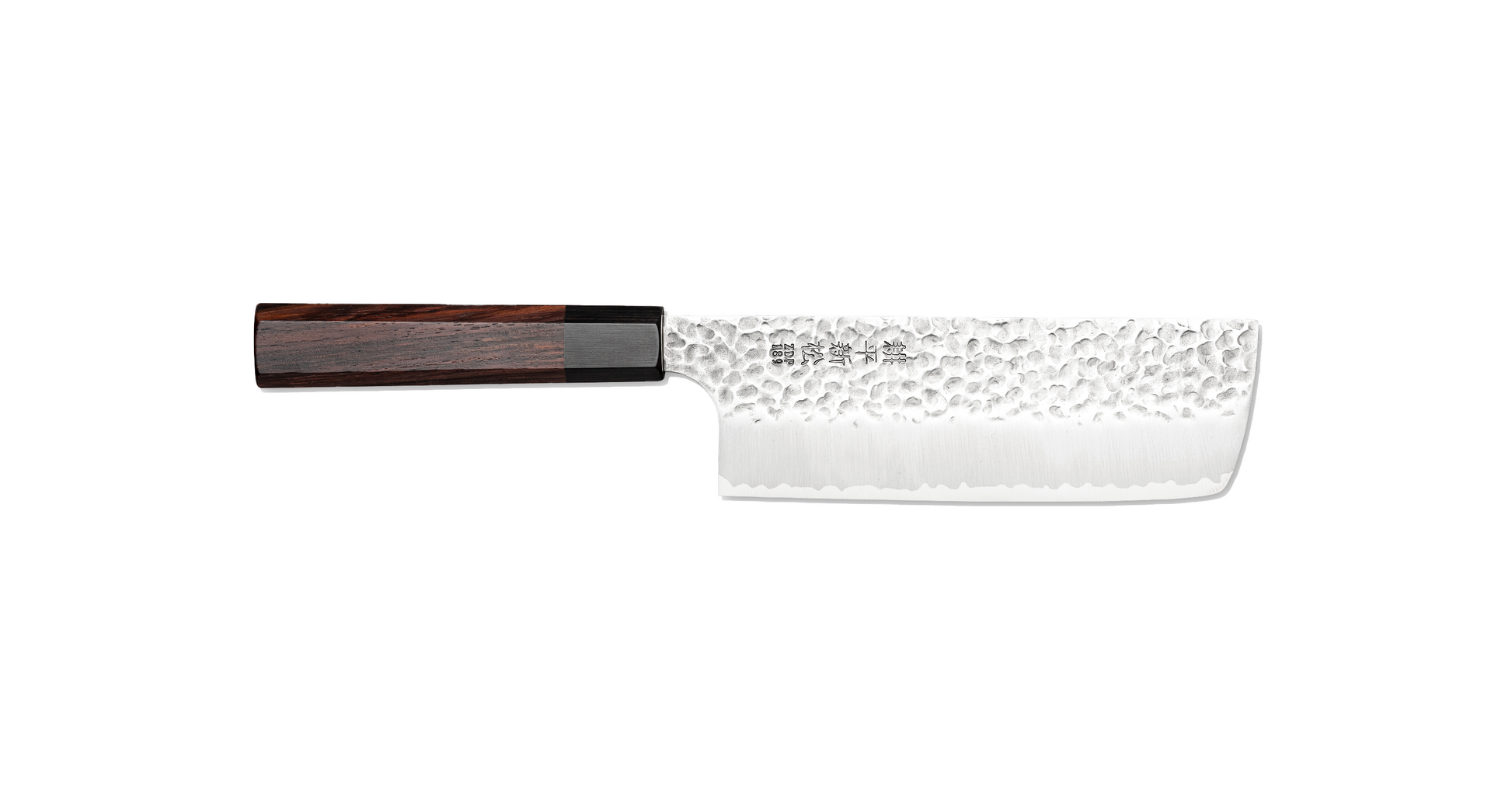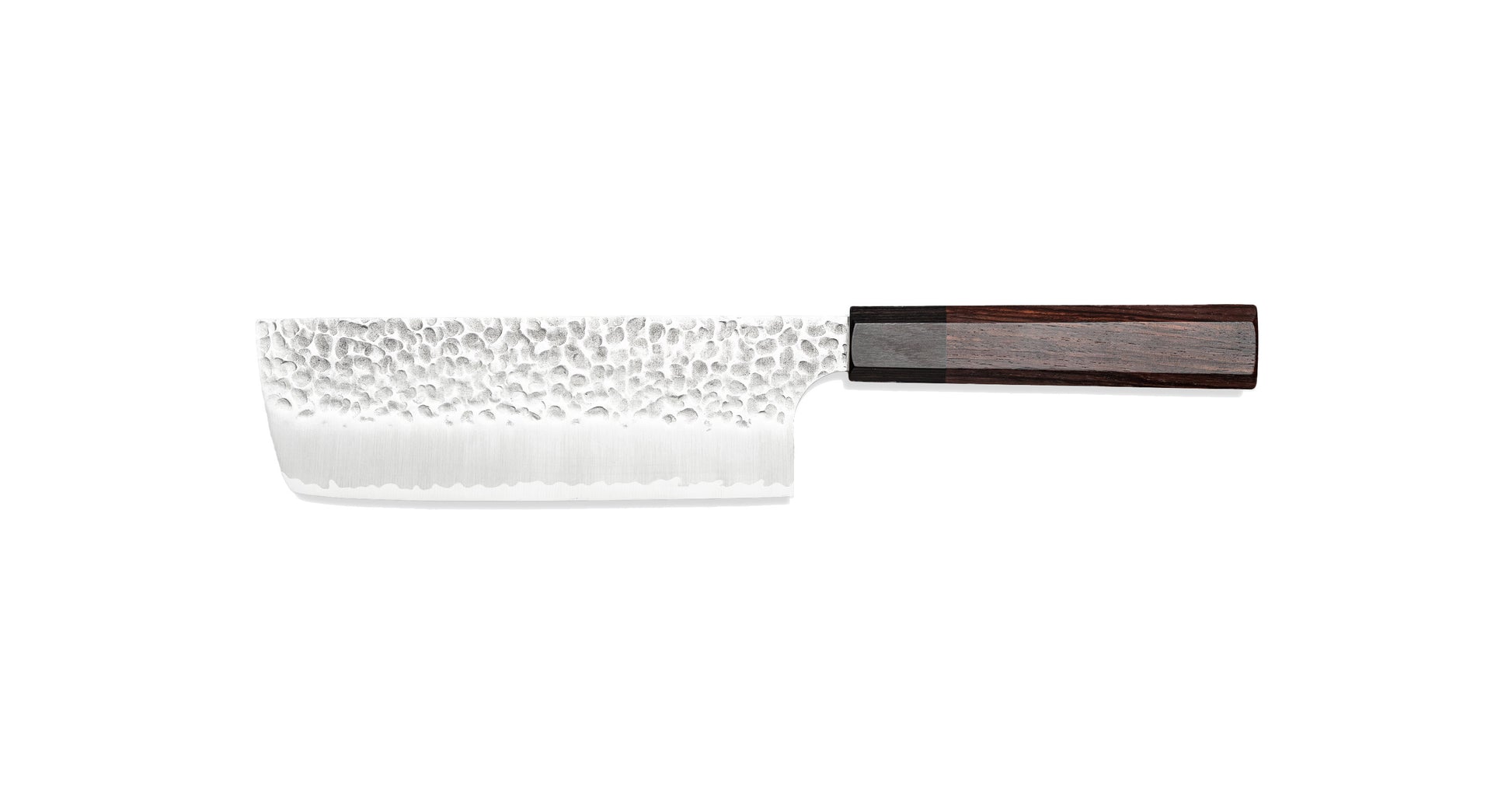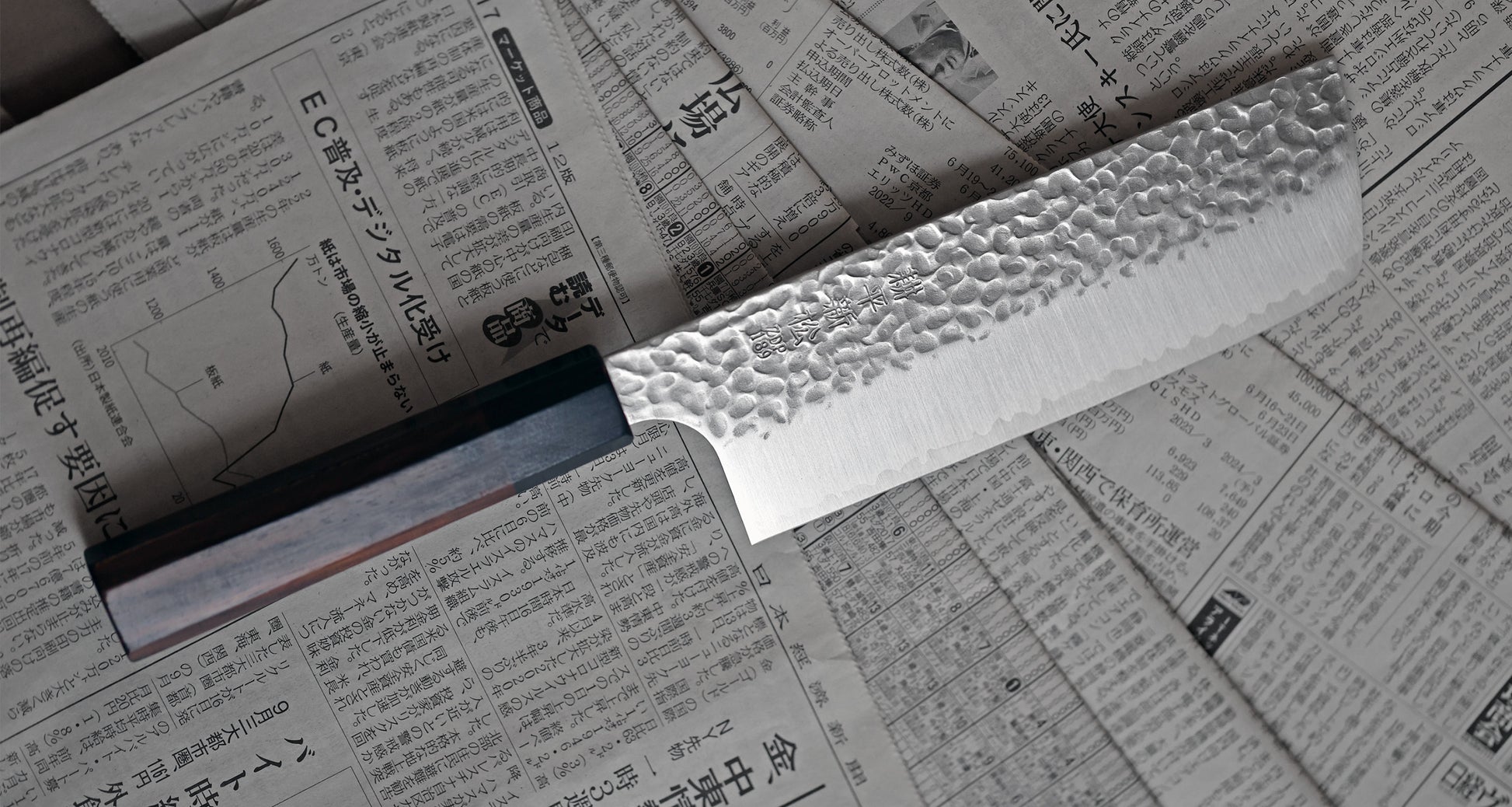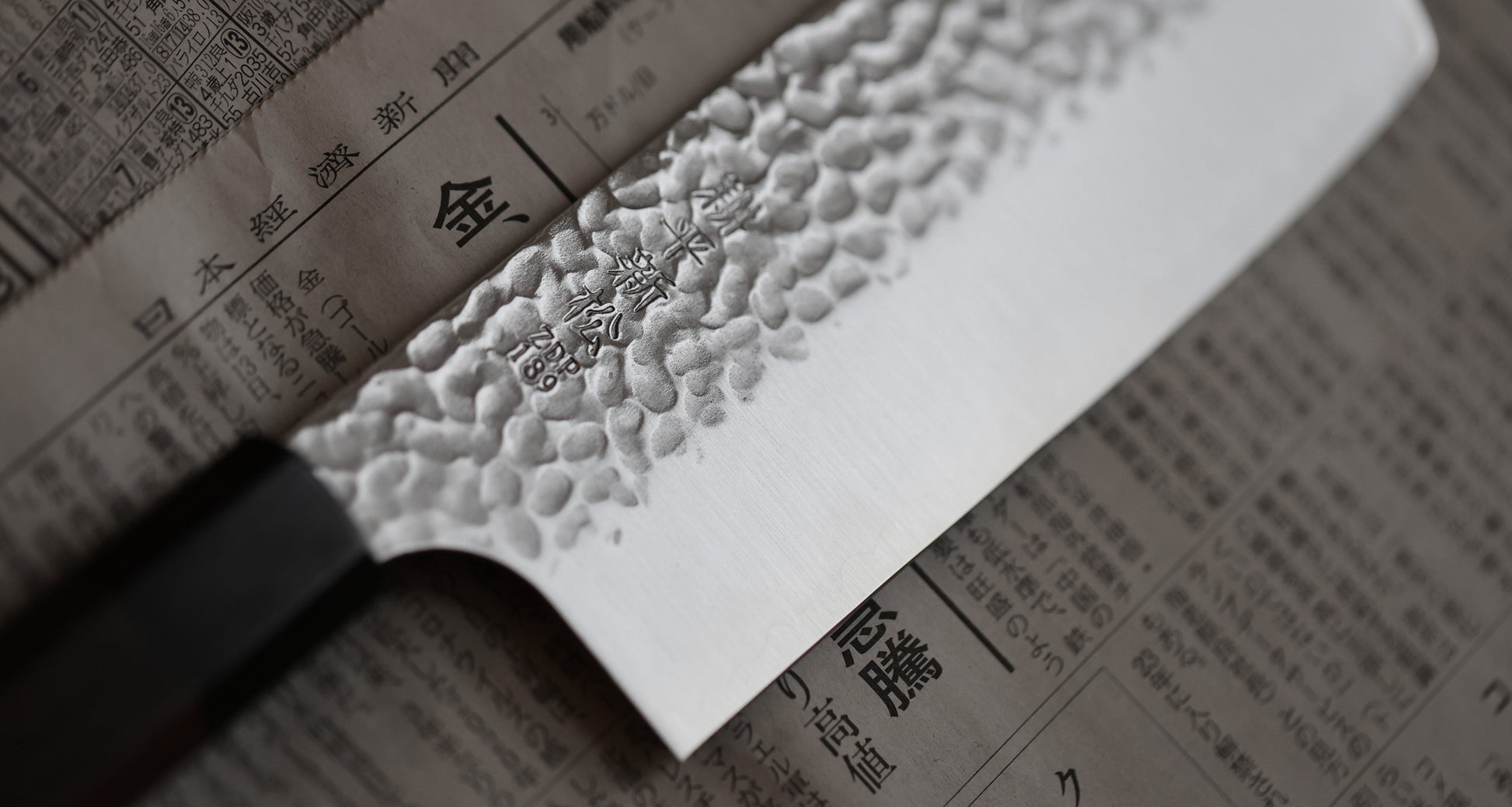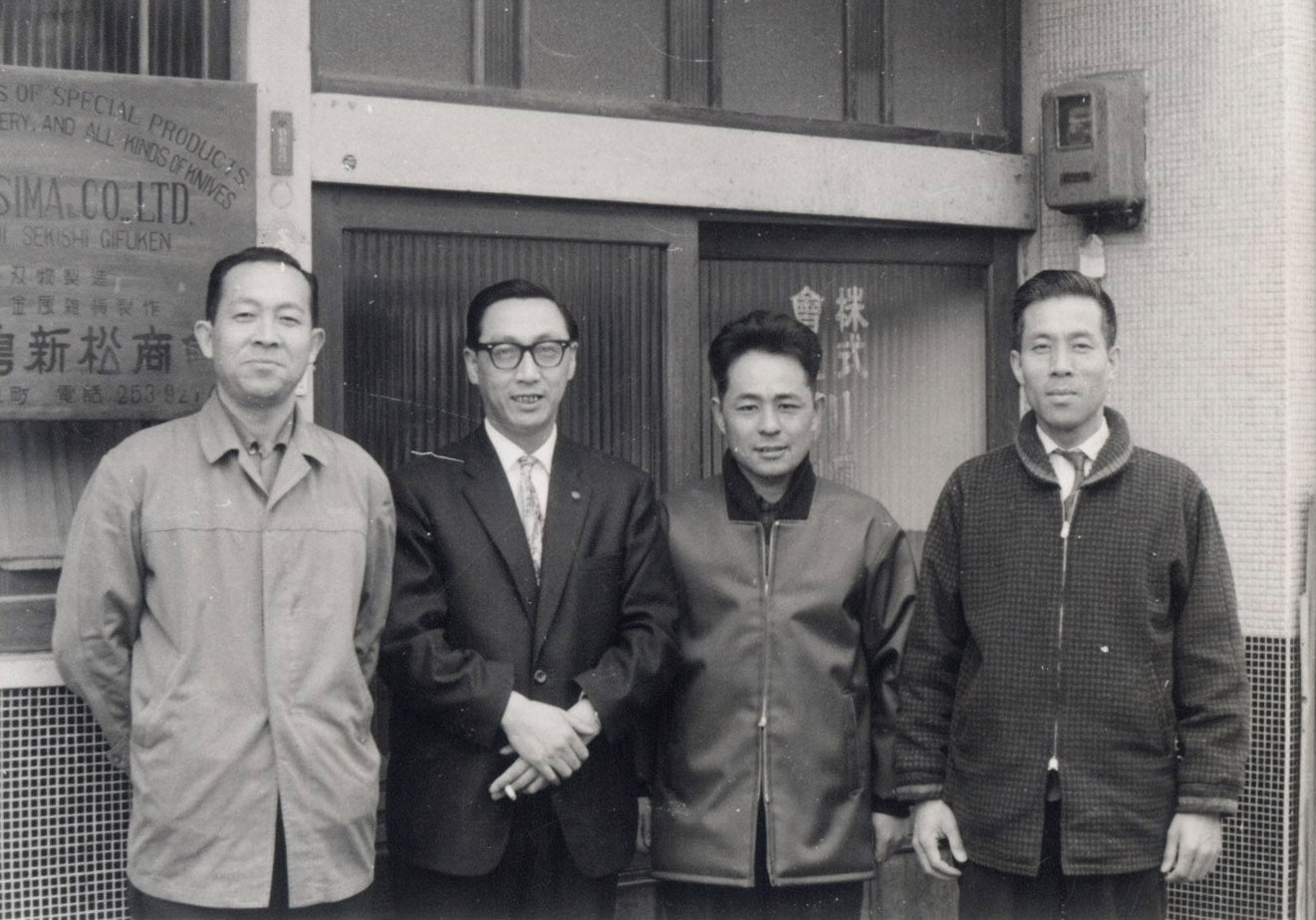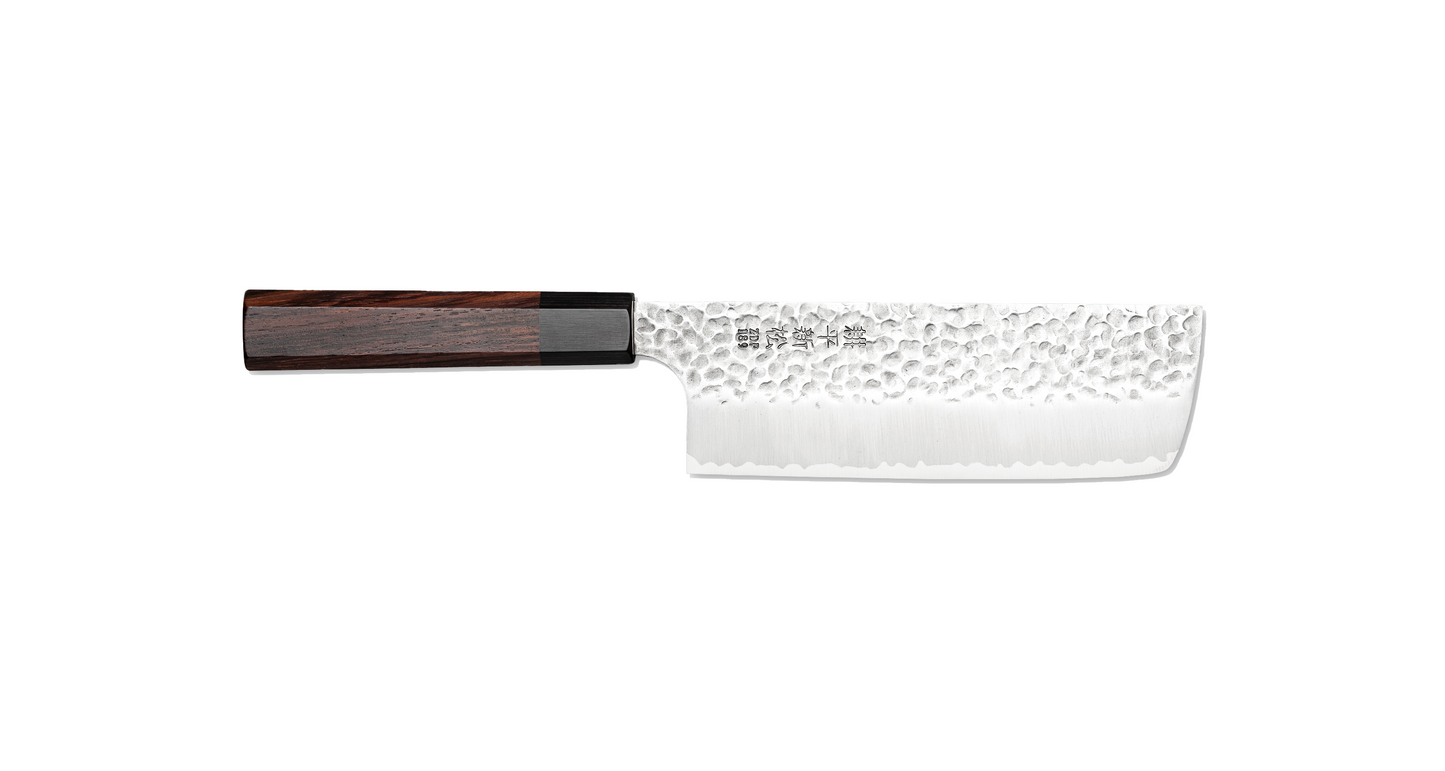
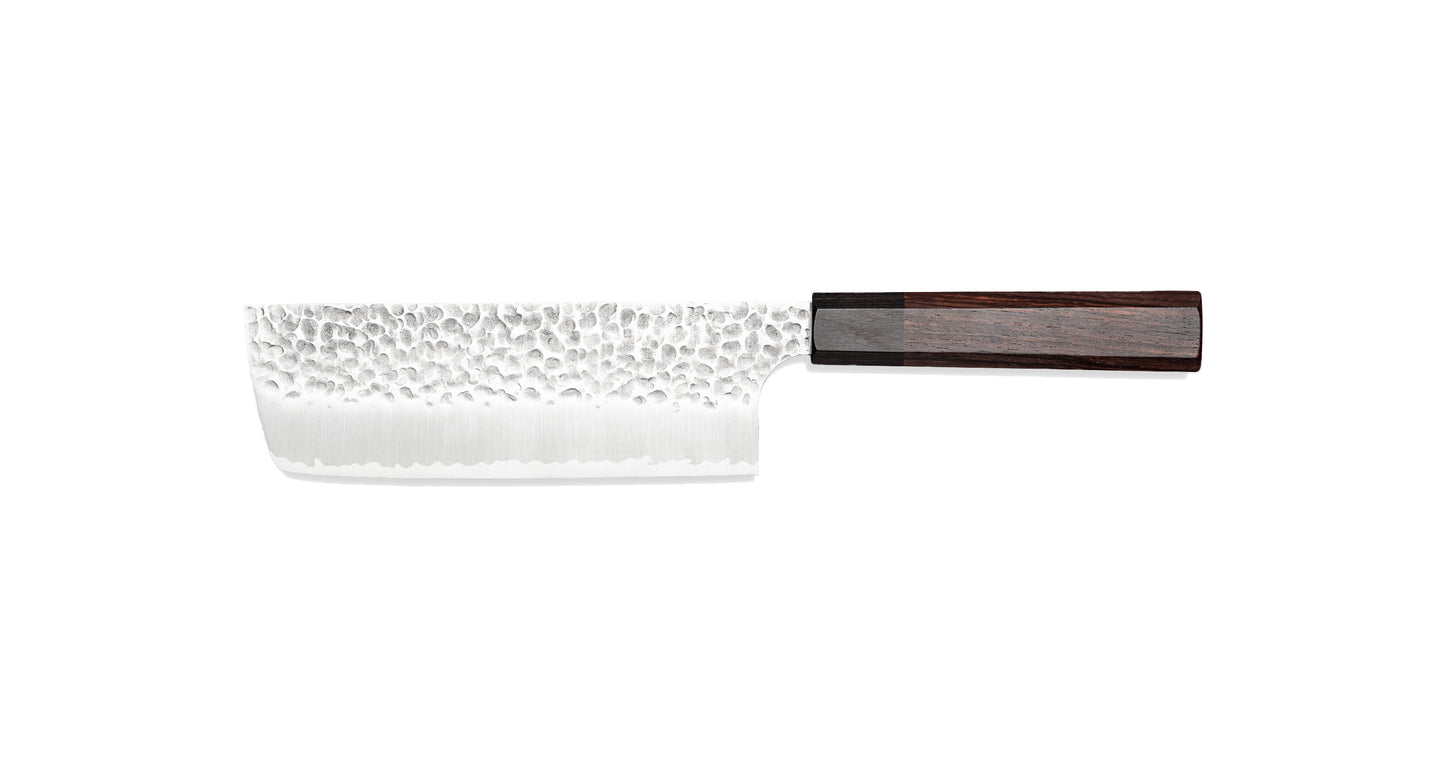
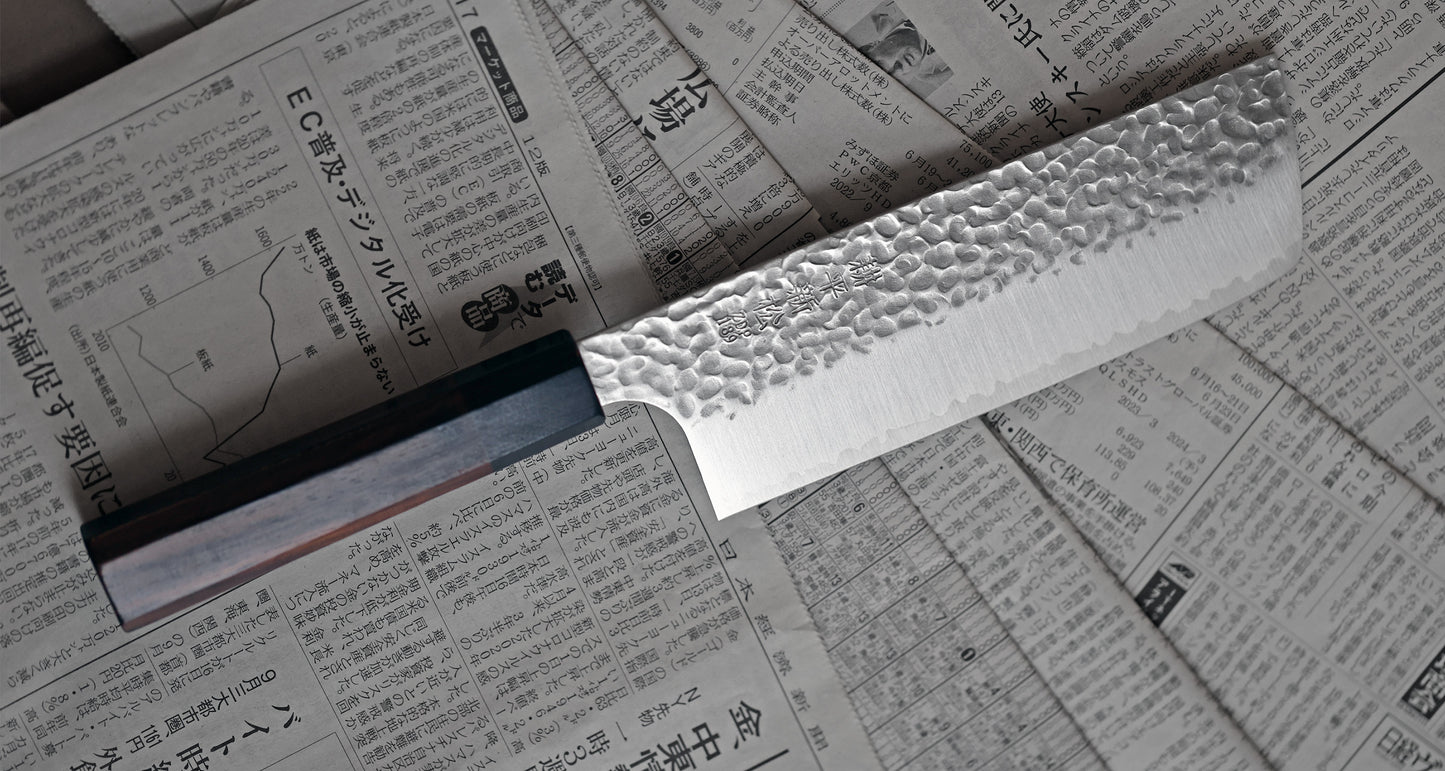
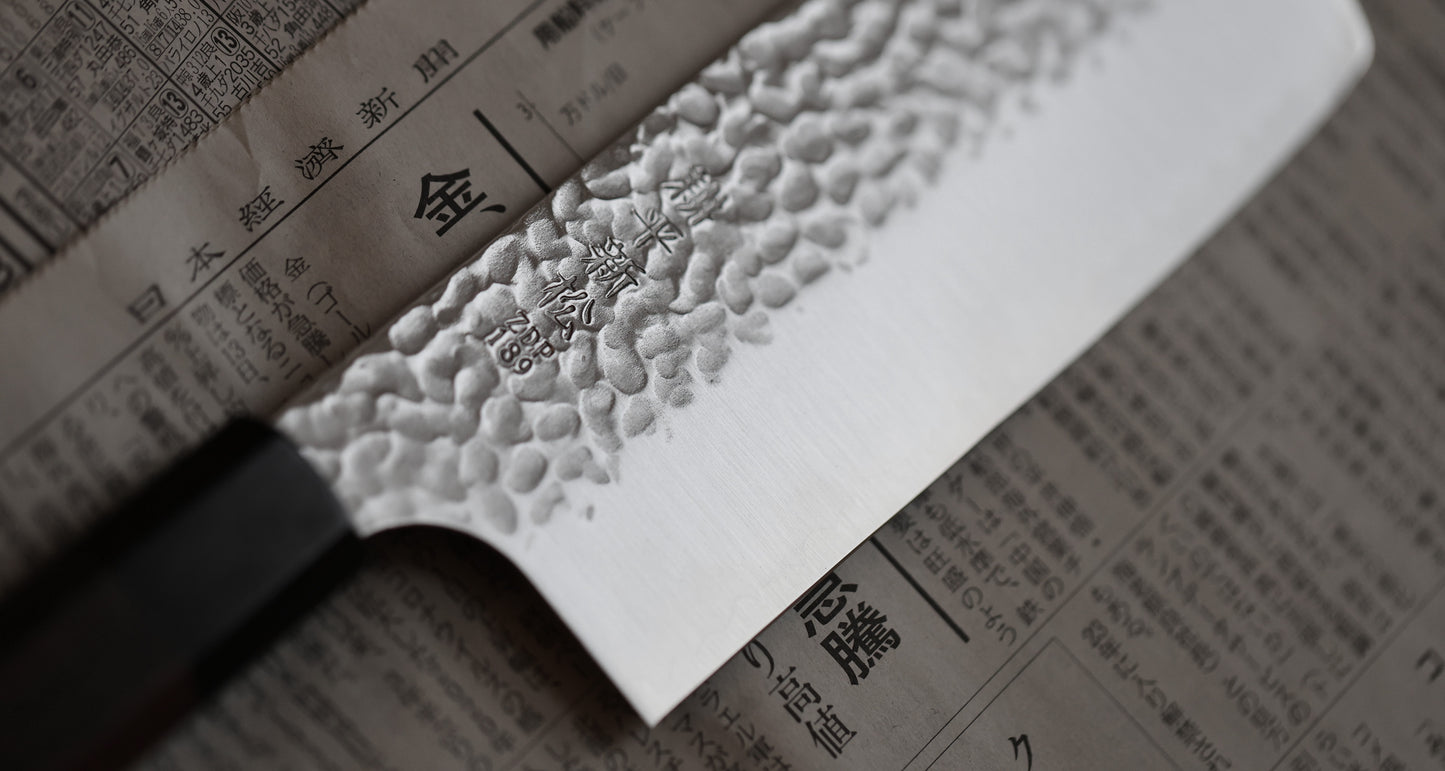
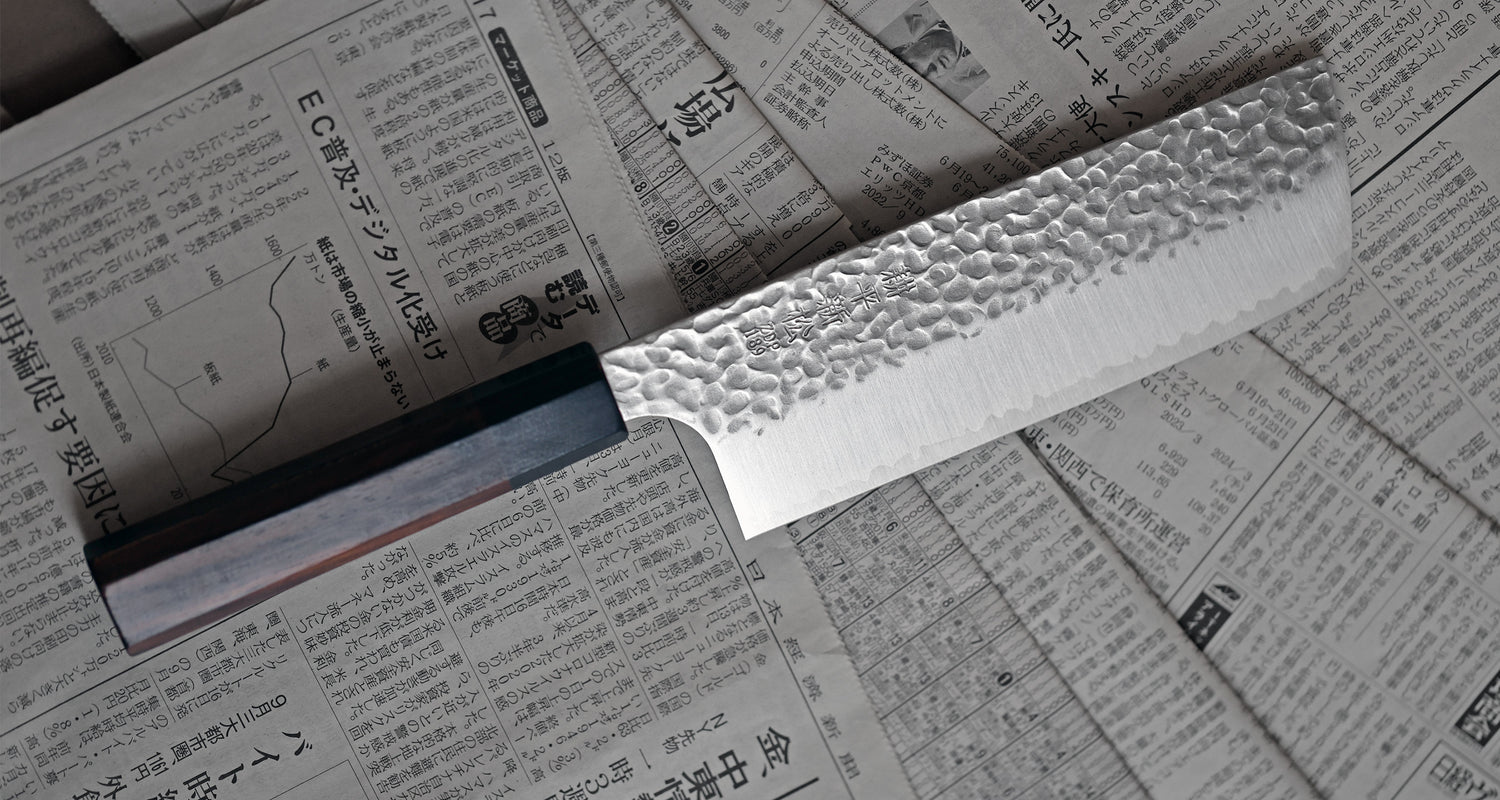
Nakiri is a traditional Japanese knife with a square, thin blade and a deep, flat belly. Since the entire flat edge of the knife touches the cutting board at once, in one clean, vertical movement, there is no need for a horizontal pull or push. This also means that you won’t be turning the vegetable into an “accordion” of pieces still clinging together by a thread. Due to its characteristics, it’s mostly intended to be used for chopping veg, but you can still use it as a good all-rounder in the kitchen.
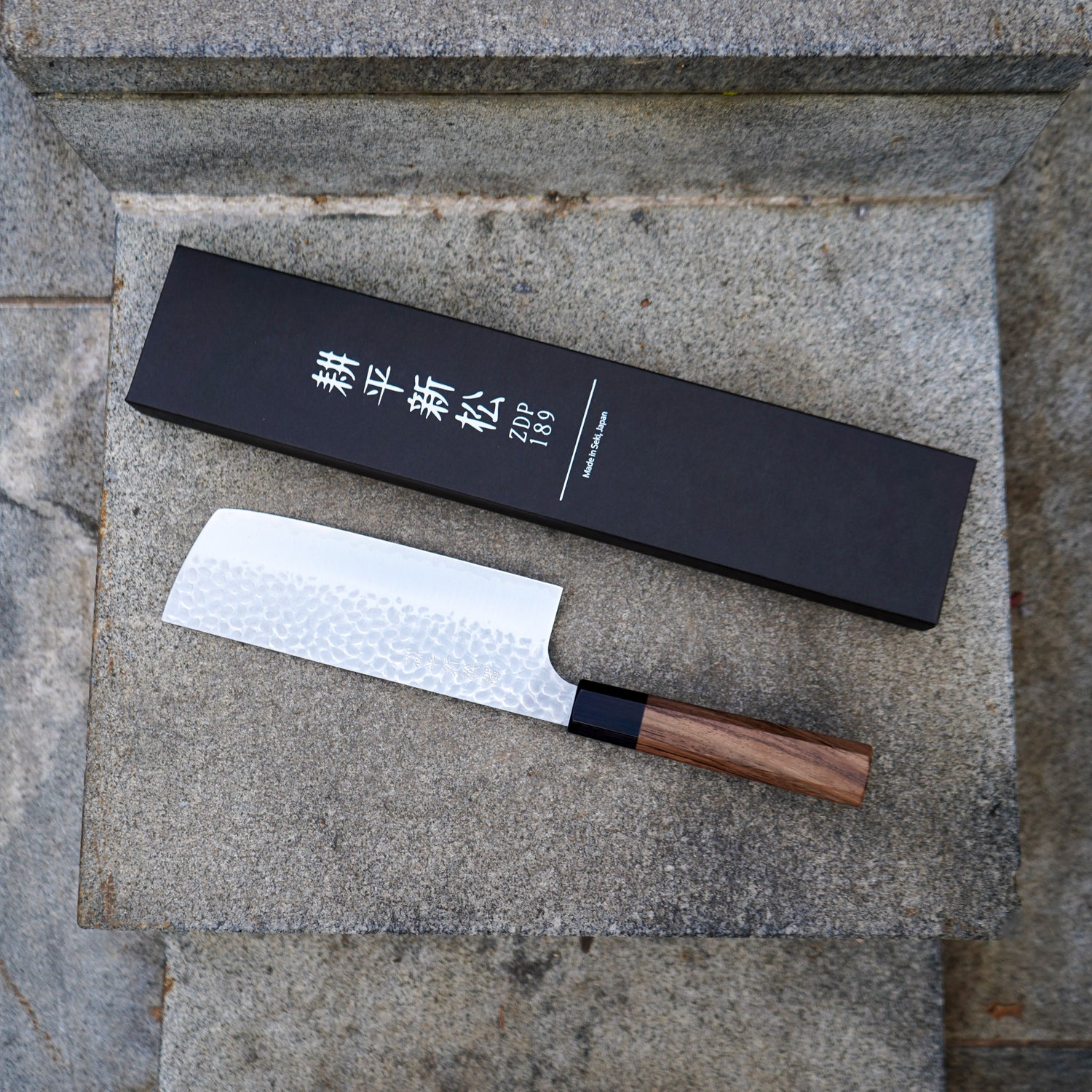
This knife was forged out of ZDP-189 steel, which falls into the powder steel category. The ZDP-189 steel has gained a reputation as one of the most technologically advanced steels in Japanese knife making, due to its unique characteristics. The carbon (C) content is around 3%, meaning it can be treated to extreme hardness (65-66 HRC), which results in extended sharpness retention. ZDP-189 steel is also highly corrosion resistant due to its high chromium (Cr) content of 20%. Because of its composition, though, it can be hard to treat and forge, so it can only be trusted to the most experienced blacksmiths.
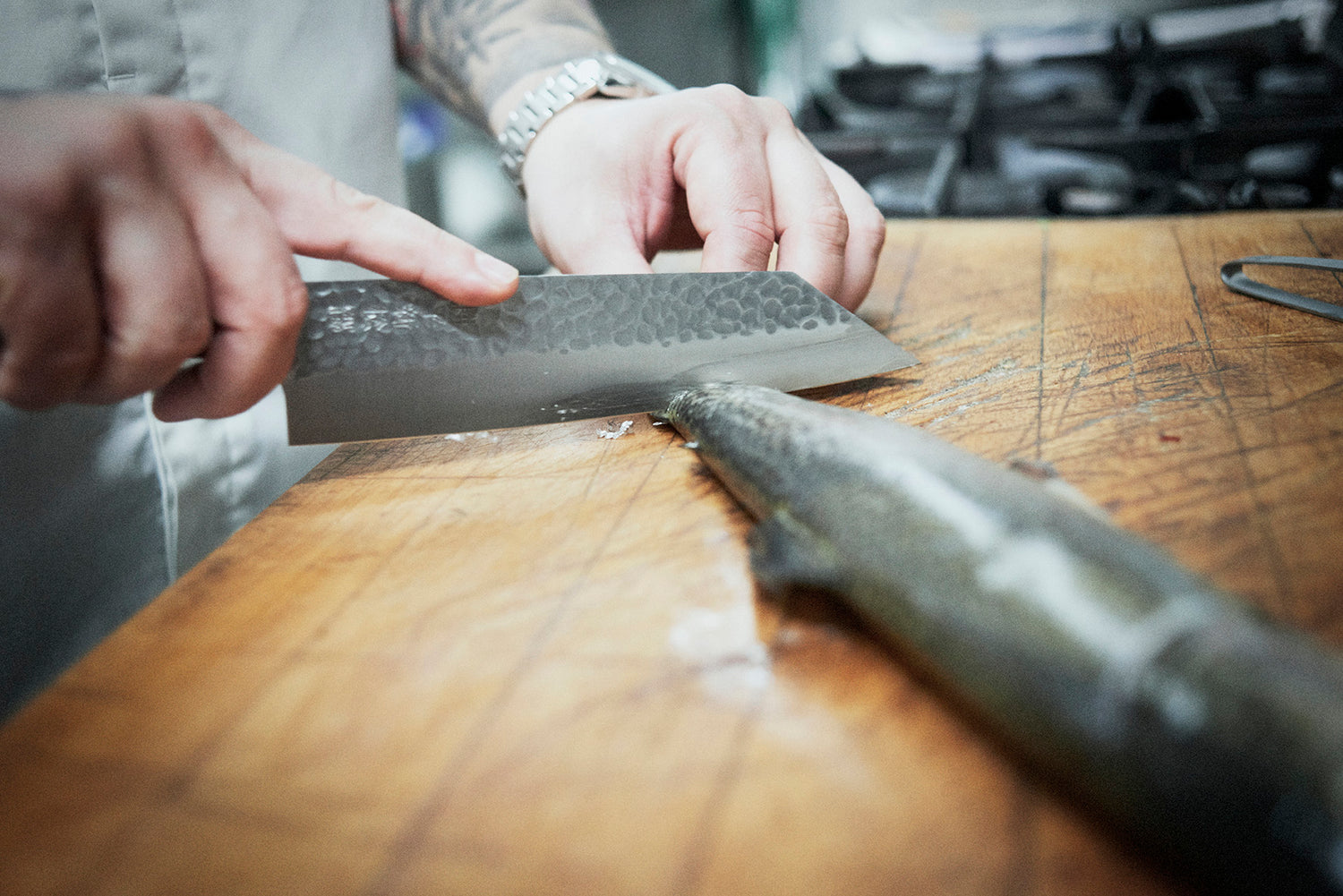
The upper part of the blade was treated with hammer blows, which resulted in an intricate tsuchime (hammered) finish. The lower half is polished down to the hairline, which is the curvy line marking the border between the laminated part of the blade (jigane) and its core (hagane). The kanji on the blade reads “Kouhei-Shinmatsu” 耕平新松, paying homage to the founders of the Suncraft smithy.
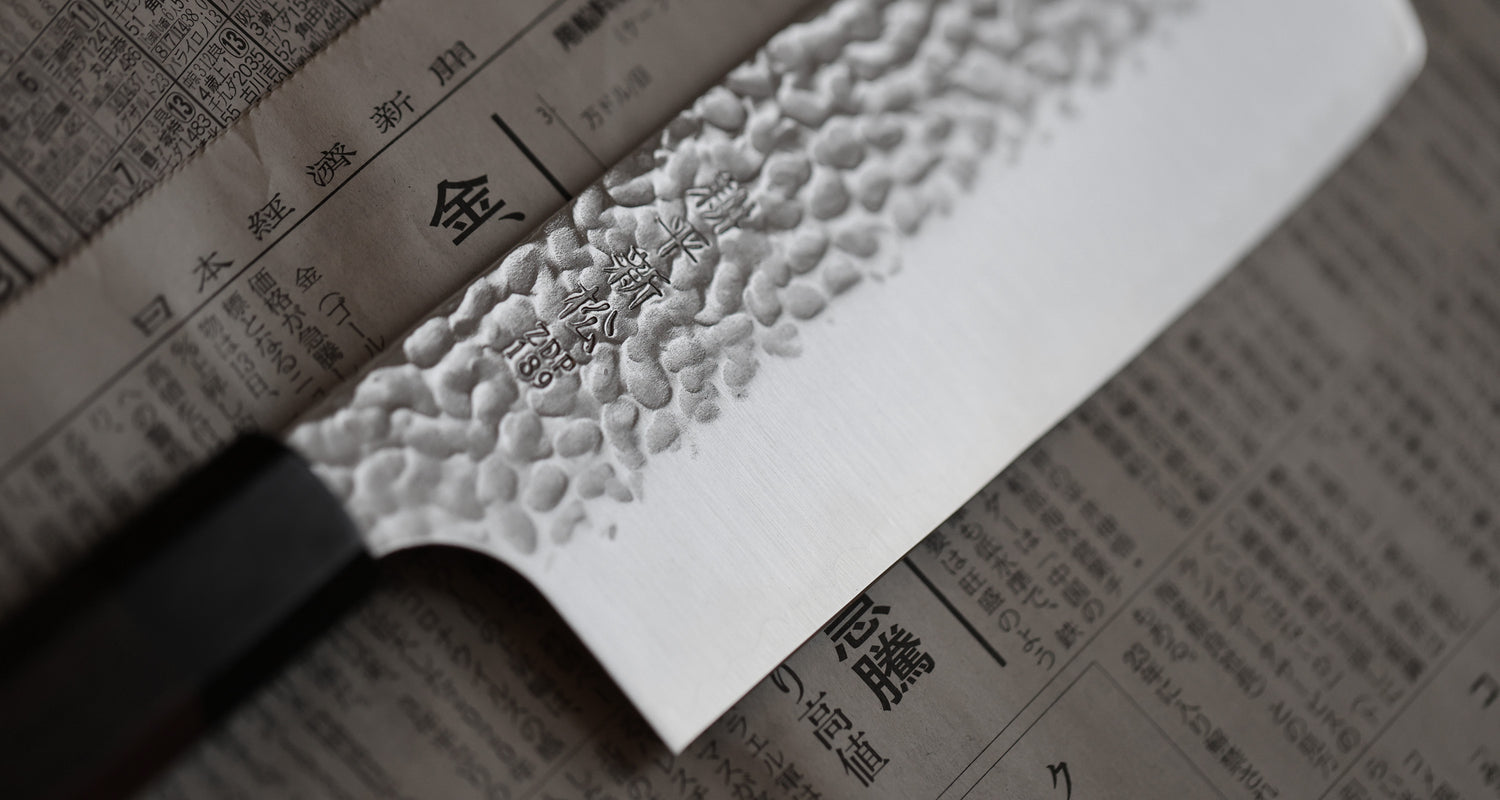
The technique used to laminate this blade is called san-mai. The core of the blade, which is made of harder (and subsequently more fragile) steel, is sandwiched between two layers of softer steel. This results in a blade that is more flexible, and therefore less prone to breakage and other outside factors.
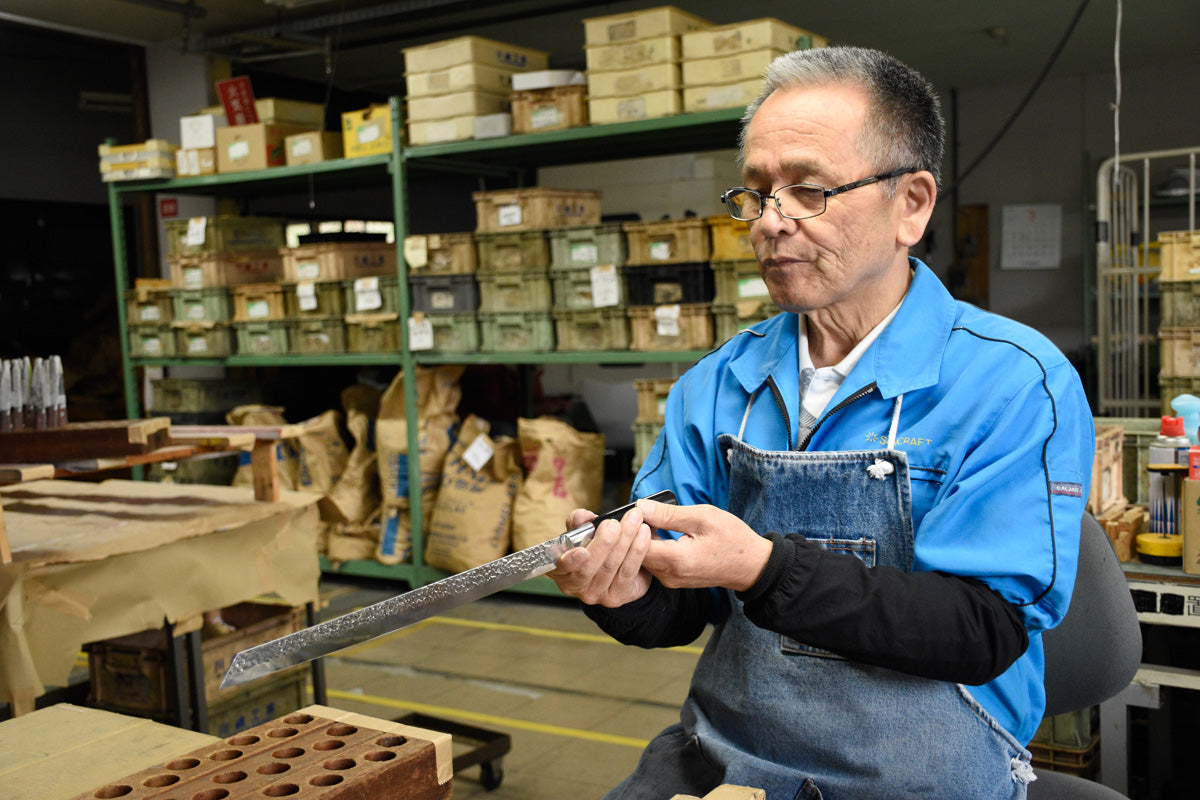
The Pursuit of Perfection in Traditional Crafts
Forged by Japanese knifemaker Suncraft in the famous knife city Seki in Gifu prefecture, which has more than 800 years of tradition in blade making and is the center of blacksmithing in the region.
-
Order
Become a resellerIf you own a brick&mortar or an e-commerce retail shop and would like to become a dealer/reseller by adding a selection of our knives, please email us.
-
Maintenance
Sharpening & knife care tipsWith proper maintenance, Japanese kitchen knives will last a lifetime!

